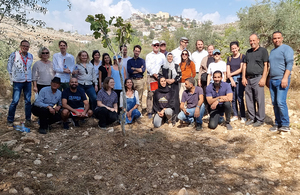Keysholders Ltd was wound up by the High Court on 21 June 2022 and the Official Receiver has been appointed Liquidator of the company.
The company purported to be involved in training, research and development but there was no evidence it had been trading after March 2019, a year before the pandemic.
However, in May 2020 the company successfully applied for a £40,000 Bounce Back Loan, despite funding through the scheme only being available to firms adversely impacted by the pandemic.
The company stated in its application that its turnover for period ending 31 December 2019 had been £200,000, when in reality its turnover was closer to £65,000.
The director of Keysholders at the time of its winding up was Olayinka Adediran and in August 2020, she submitted an application for funding through the Coronavirus Business Interruption Loan scheme for £250,000. This was rejected, but the loan application now stated turnover for year ending 31 December 2019 was in fact £550,000.
In November 2020, Keysholders obtained the first of four grants through the Job Retention Scheme (JRS), totalling £20,000. This scheme allowed firms to retain staff through the pandemic, by providing funding of 80% of wages up to a limit of £2,500 per month per employee.
However, the contract for the staff member these payments were theoretically for, shows that they were employed after the date on that the business was eligible to receive JRS funding for that individual.
The High Court agreed that closing down the company was in the public interest, given that it was trading without commercial probity and was used as a vehicle to abuse three Covid relief schemes.
Edna Okhiria, Chief Investigator at the Insolvency Service, said:
Our investigation found that this company could demonstrate no evidence of legitimate trading since at least March 2019, yet has been claiming taxpayers’ money through Covid-19 financial support schemes that it was not entitled to.
We will always seek to have companies wound-up in such cases, in the public interest.
Notes to editors
Keysholders Ltd (company number 05645956), was incorporated in December 2005.
All public enquiries concerning the affairs of the company should be made to: The Official Receiver, Public Interest Unit, 16th Floor, 1 Westfield Avenue, Stratford, London, E20 1HZ. Telephone: 0300 678 0015 Email: piu.or@insolvency.gov.uk.
Company Investigations, part of the Insolvency Service, uses powers under the Companies Act 1985 to conduct confidential fact-finding investigations into the activities of live limited companies in the UK on behalf of the Secretary of State for Business, Energy and Industrial Strategy (BEIS). Further information about live company investigations is available here.
Further information about the work of the Insolvency Service, and how to complain about financial misconduct, is available here.
You can also follow the Insolvency Service on:

